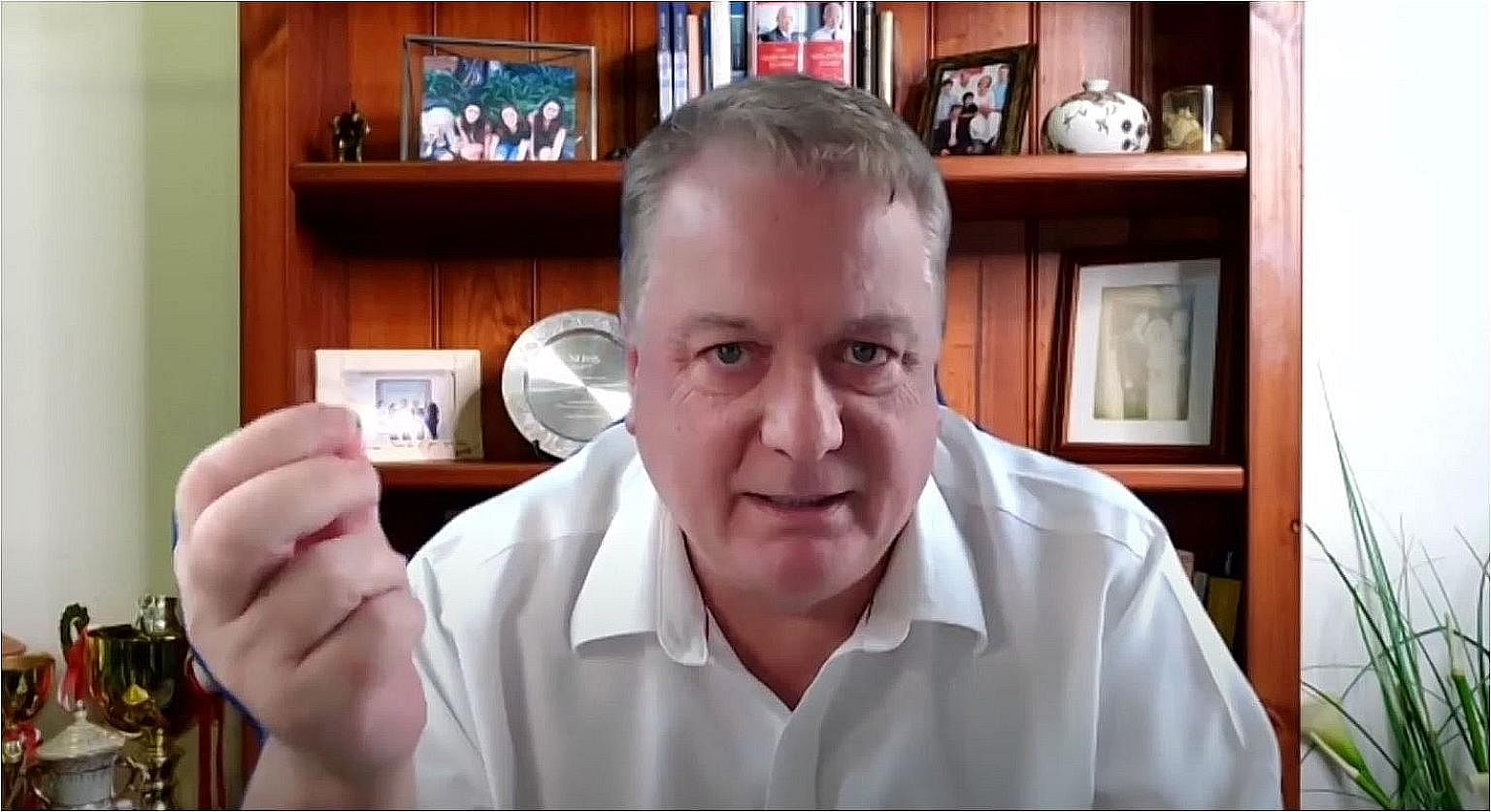Deadlier than Covid-19: Consider Disease X as a serious threat, say experts
Spectre of new unknown disease should drive nation's preparedness for a deadlier outbreak
Sign up now: Get ST's newsletters delivered to your inbox
Disease X, a new unknown disease that could cause a future epidemic, should be seen as a serious threat to drive preparedness - as it will be highly infectious, deadlier than Covid-19 and will mutate easily, said local health experts.
For now, it is more a hypothetical concept to warn people of a worse new disease to enable planning, said Professor Dale Fisher, a senior consultant at the division of infectious diseases at the National University Hospital.
Prime Minister Lee Hsien Loong raised the spectre of the emergence of Disease X during the debate on the President's Address in Parliament on Wednesday.
He warned that it is only a matter of time before Disease X happens, saying that Covid-19 is by far not the worst new disease that can befall mankind.
He said Singapore must build up its resilience, instincts and preparedness to counter Disease X when it arrives.
Commenting on PM Lee's remarks, Prof Fisher said: "It is also potentially useful in driving preparedness efforts and not being complacent as the world is most at risk from novel infections or major mutations in existing micro-organisms and less so from pathogens we already know about, such as Ebola."
Whether or not Covid-19 is seen as Disease X, Prof Fisher said what is more critical is the national and global response to tackle the current pandemic and how this could be improved should a similar or more severe pandemic emerge.
Associate Professor Alex Cook, vice-dean of research at the National University of Singapore's (NUS) Saw Swee Hock School of Public Health, noted that Covid-19 has some features associated with Disease X.
"It is a new virus, caused a respiratory disease pandemic, and it wasn't influenza. Its mode of transmission wasn't known at first, nor was its symptomatology or severity profile. We still don't know about immunity to Sars-CoV-2.
"It is also severe enough to cause many deaths but not too severe that it is easy to control, like the severe acute respiratory syndrome (Sars)," said Prof Cook.
All these uncertainties make it difficult for countries to shape policies and implementation, resulting in them stumbling in the dark with their responses, Prof Cook said.
But he cautioned that it would be rash to think that the next infectious disease threat will be Covid-like, as the possibilities are endless.
"It could be a new influenza virus, like the one that caused the 1918 pandemic, killing tens of millions of people.
"It could also be something more severe, in the mould of Sars, the Middle East respiratory syndrome or the Nipah virus," he said.
The worst nightmare would be a virus which is very transmissible, like influenza, and as deadly as Sars, like the hypothetical Mev-1 virus in the film Contagion, he posited
"So while Covid-19 has been a disaster for the world, with almost a million deaths, the next big one will be different - and could be worse.
"I think that is why PM Lee cautioned us not to think of Covid-19 as Disease X," added Prof Cook.

The world is most at risk from novel infections or major mutations in existing micro-organisms and less so from pathogens we already know about, said Professor Dale Fisher, seen here in an episode of The Straits Times' talk show The Big Story.
ST PHOTO: THE BIG STORY
Experts said the experience from previous infections has definitely taught Singapore various lessons.
Singapore learnt the importance of equipping healthcare workers adequately to protect them against infections originating from a hospital while on the job, having gone through the Sars experience.
That pandemic saw infections spread from patients to healthcare workers in Singapore, said Professor Teo Yik Ying, dean of the NUS Saw Swee Hock School of Public Health.
It also led to the setting up of a dedicated healthcare facility - the National Centre for Infectious Diseases - to look after those with respiratory infections, as well as stockpiling adequate essential personal protective equipment, which proved to be critical in an outbreak, Prof Teo added.
These helped to keep Singapore's Covid-19 fatalities and infection rates among healthcare workers one of the lowest in the world.
Other lessons gained were in protecting the community from a highly infectious agent and the protocols to minimise infection among vulnerable groups like those in old folks' home and dormitories, such as mask wearing, safe distancing, good personal hygiene and aggressive contact tracing and ring-fencing, Prof Teo said.
Prof Cook said Covid-19 also called for new policies following lockdowns in Wuhan, China, and Singapore's circuit breaker.
"In the years ahead, there will be a lot of research on what worked and what didn't, though it behoves us not to over-extrapolate from the Covid-19 experience for Disease X and to always stay nimble in our response," he said.


